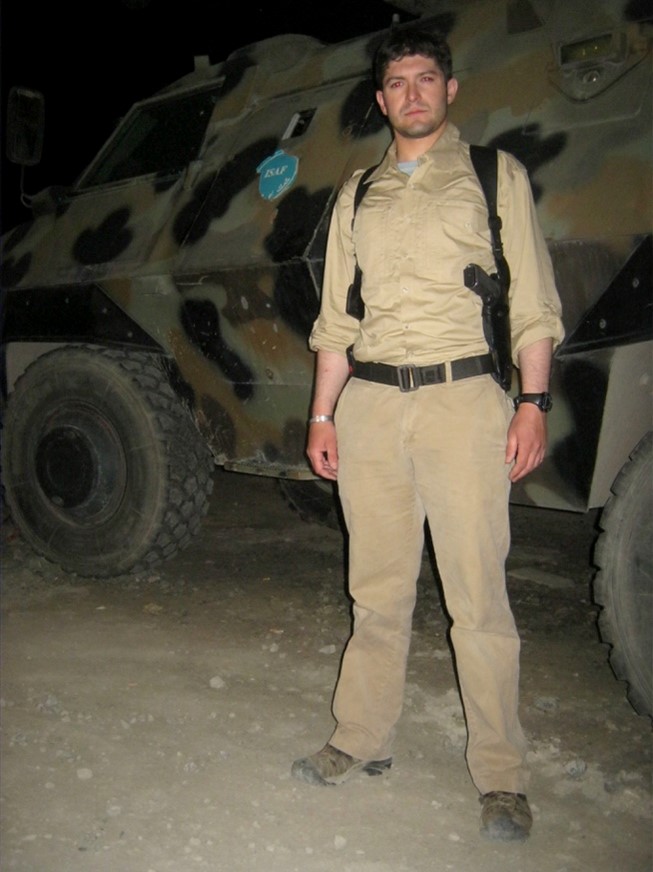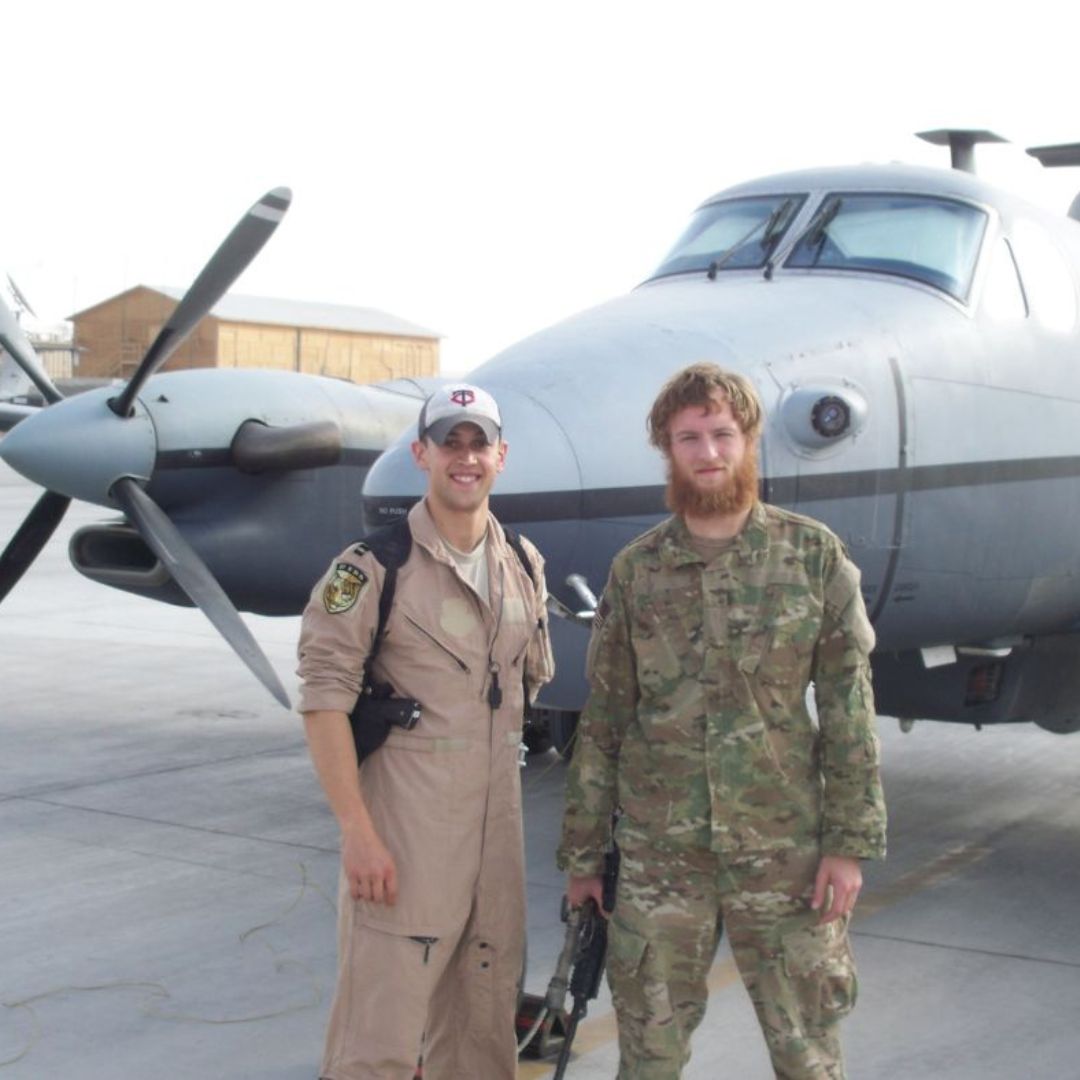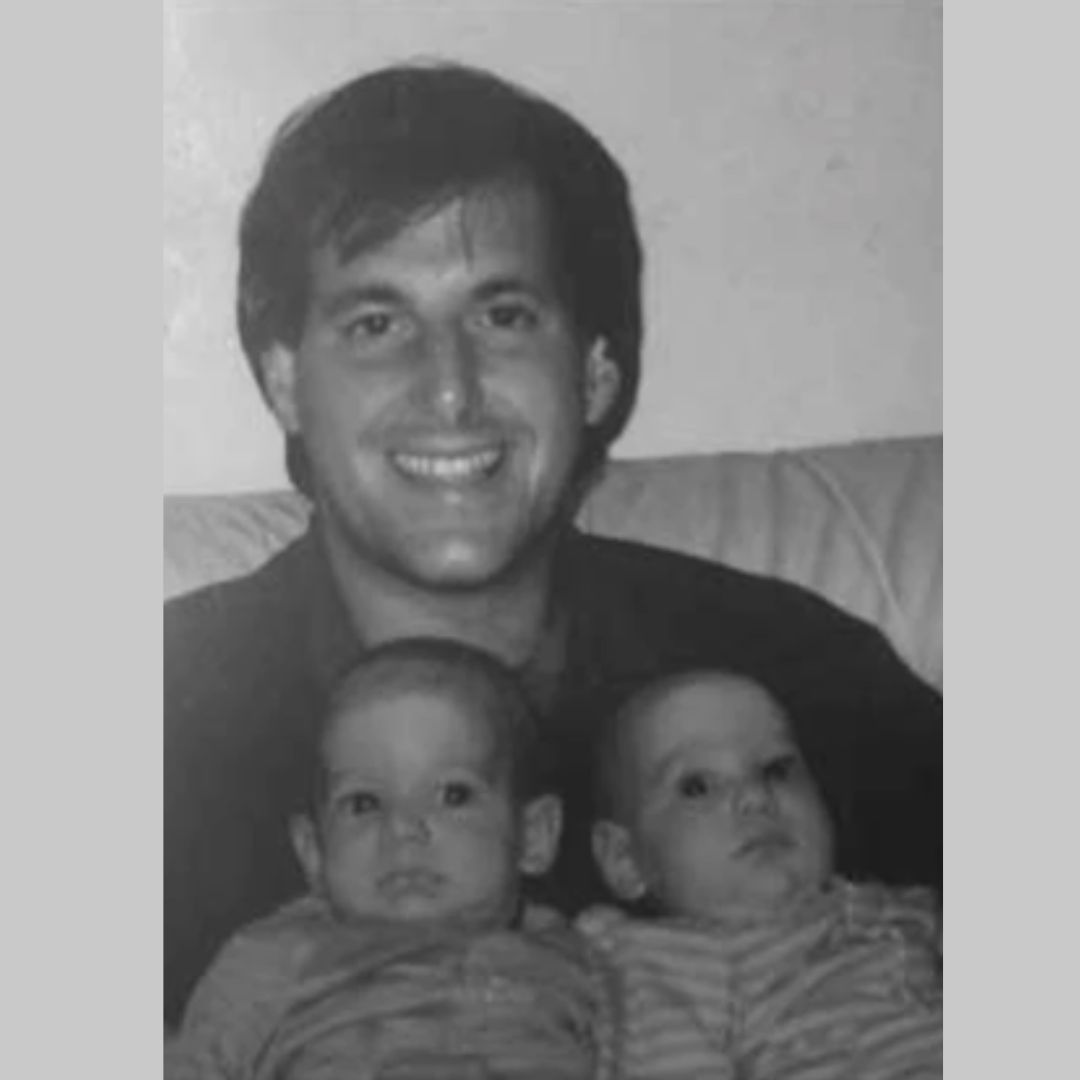Rescue & Recovery: In Their Own Voices With Bryan Stern
Rescue & Recovery: In Their Own Voices With Bryan Stern
- December 2, 2022

Stern in Afghanistan
Watching U.S. troops withdraw from Afghanistan in August 2021 inspired Bryan Stern — a veteran and rescue and recovery worker— to found Project Dynamo, which evacuates Americans and our allies overseas. With December upon us, we're closing out Salute to Service with one more special installment of our "In Their Own Voices" series. Here, Stern talks about the role he played on 9/11, the clean-up at Ground Zero, and his years in the military as a counterinsurgency and intelligence operative. Today and always, we are thankful to all those who serve the country in the military.
Where were you on 9/11?
I was working for the U.S. Army with counter-intelligence support to counter-narcotics, and we had offices in 6 and 7 World Trade. When I came out of the train station that morning, there was a burning hole in the North Tower. I immediately thought, “This was no accident.” I started calling the office to find people, but the lines were busy. I was occupied trying to reach others and didn’t even see the second plane hit, but I heard people screaming and then the huge explosion. I swear, I could feel the heat of the building on me. I knew in that moment that the world was going to be different.
What role did you play in the rescue and recovery efforts?
As the South Tower started to come down, I took coverage between two vehicles. I thought, "A hundred and ten stories coming screeching to the floor, I don’t have a chance." I never heard anything like it. It was like a movie. It was this larger-than-life cloud, chasing me. It looked like I would get hit in the head and that’d be the end. All I hoped was that it would be quick.
I waited for it to end. Then I got up and checked myself. I had all my fingers and all my toes; I was bleeding a little — cut up with scratches, but I didn’t have any puncture wounds. I wasn’t breathing well, so I put my face into my shirt because I thought that would be better than nothing to protect myself from the dust.
I would spend the next four days straight at Ground Zero, then return soon after and stay for weeks. My priority was to find people who might still be alive.
We weren’t wearing respirators, but we should’ve. We got some eventually. Before that, some people were wearing painters masks. Some tried wearing paper masks, but when you started to breathe, they would quickly get covered in dust.
I never found anyone alive during my time at Ground Zero. I was very optimistic for those first four days. I remember desperately wanting to find someone alive, but when that didn’t happen, I began thinking it'd be great if I just found someone to return to their family. That would have been a blessing at that point.
Stern during the rescue and recovery effort after 9/11.
Can you describe the bond between yourself and other recovery workers? How has this community impacted you?
Everyone helping was from a different agency. We weren’t used to working together and we didn’t have the same equipment, and sometimes, we didn’t even speak the same language. It was, "Help where you can.” Each day, new people would show up to help. We all worked together to get the job done.
Do you have any health issues connected to your time at Ground Zero?
I still have lung problems. As part of the military, I’m tuned in with my PTSD and mental health. For a long time, I couldn’t go near construction sites. The smell of the concrete dust and the sound of the jackhammering would bring me right back to Ground Zero. Now, I return to the 9/11 Memorial & Museum, often with veteran groups. It has become cathartic.
Why is it important to share your story and stories of others with the next generation?
When I talk to young people, I’m always vocal about 9/11, because it’s touched all of us in some way. Whether it’s traveling at the airport or renewing your driver’s license. I don’t think they realize how many little things in their lives were changed because of 9/11, and by explaining that to them, it helps them understand the timeline and importance of that day.
We always say, "Never Forget." Whenever I give speeches, I always tell people to live their lives like it’s September 12. I should’ve died twice on September 11, but I didn’t. It ties into one of our big sayings at Project Dynamo, which is "Don’t be a spectator." That doesn’t mean you have to run into a burning building, but it means you have to do something. Whether that’s teaching, advocating, donating, anything really.
Anything else you’d like to add?
I’ve always run towards people who need help. I did so with many others at the World Trade Center on 9/11 and during the following rescue, recovery, and relief effort. I also did so in the military. That’s why I founded Project Dynamo a few months before the 20th anniversary of 9/11.
I was in my living room, watching the withdrawal from Afghanistan, and it took me right back to 9/11. The Taliban were hunting down my friends. I thought, “What would a fireman do on 9/11?” I called some of my friends and said, “We’re going to Northern Afghanistan and we’re going to help.” I told them I wanted to be back for the 20th anniversary, and we would do the best we could in that time. Since then, we’ve been all over the world helping people.
Project Dynamo has two main operations. Digital Dunkirk locates veterans at risk and transports them to a safe location. These efforts are assisted by Dynamo II, a group of veterans who were contacted to help former Afghanistan interpreters and civilians whose lives were at risk in Afghanistan. Since the Russian invasion of Ukraine, we’ve expanded Dynamo II operations to help evacuate refugees there. These operations are a colossal undertaking, as the work is done by civilians and runs off donations. To read more about the work we do, please visit our website.
Compiled by Caitlyn Best, Government and Community Affairs Coordinator
Previous Post
Visionaries in Service: Phil Caruso

As National Veterans and Military Families Month winds down, we share another installment of our Visionaries in Service series. Here, Air Force veteran Phil Caruso, who retired as a Major with two Bronze Stars and now serves as Chairman and Executive Director of No One Left Behind, answers questions about giving back through public service.
Next Post
Tall Order: Accessories With a Cause

The legacy of Andrew Friedman, who was killed on 9/11 just two weeks after staring a job at the World Trade Center, lives on in the accessory company his twin sons founded after his death.

